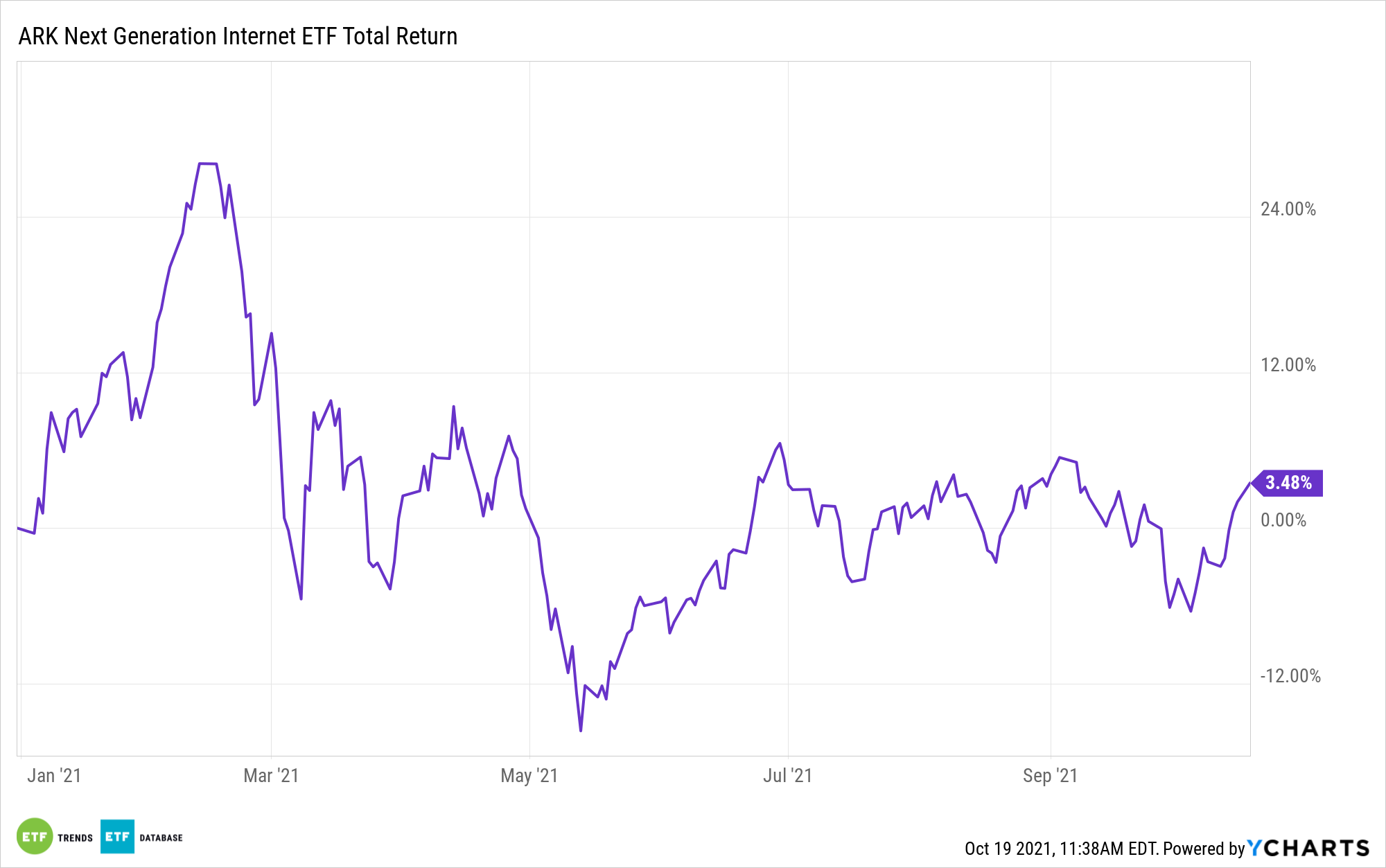Owing to the streaming entertainment boom, the rising popularity of podcasts, and social commerce, digital advertising is rapidly evolving.

No longer is digital advertising about just buying banner ads on highly trafficked web sites or buying Google keywords, and with the industry changing by the day, investors need to know their exchange traded funds are up to the challenge. The ARK Next Generation Internet ETF (NYSEArca: (ARKW) answers the bell for investors.
As one example, podcasts are booming, and the actively managed ARKW taps into that theme with a nearly 4% allocation to Spotify (NYSE:SPOT).
“EMarketer estimates that the number of podcast listeners in the United States increased more than 16% in 2020 to 107 million–even without commuting for most of the year,” says Morningstar analyst Sachin Nagarajan. “(Morningstar analyst Ali) Mogharabi expects the number of U.S. podcast listeners to grow at a 6% annual rate through 2025 to 143 million total listeners.”
While it faces competition from larger internet and technology companies, Spotify is the firm best-positioned to benefit from the exploding popularity of podcasts, according to Morningstar.
Another result of coronavirus shelter-in-place directives is consumers’ increasing willingness to part with linear television/traditional cable and embrace streaming and connected TV. Regarding connected TVs, that trend is a boon for Roku (NASDAQ:ROKU), which is ARKW’s sixth-largest holding at a weight of 4.54%.
“The increasing number of viewers abandoning traditional TV–or never signing up in the first place–points to the growing importance of streaming content. Mogharabi estimates around two thirds of U.S. households subscribe to traditional TV services today, which is an 80% drop from 2018,” adds Nagarajan. “Connected TVs have attracted a variety of viewers, which is good news for advertisers. EMarketer estimated that in 2020 connected TV viewers represented 48% of Generation Z, 57% of millennials, 49% of Generation X, and 33% of baby boomers.”
Finally, e-commerce is still in its early stages of growth, and while some investors ascribe most of that growth to the pandemic, the fact of the matter is that online retail was soaring prior to the health crisis. As such, some ARKW member firms stand to benefit from that trend.
“Growth in e-commerce, especially as it has accelerated during the pandemic, will likely increase growth in digital ad spending. And as traffic on retail sites or apps increases, advertisers create new revenue opportunities for retailers,” says Nagarajan. “Aggressive investments by large retailers like Amazon, Walmart (WMT), and Target (TGT) strongly support Mogharabi’s view that online retail is attracting more digital ad dollars. Each of these companies has either created or acquired platforms to make advertising easier for sponsors.”
For more news, information, and strategy, visit the Disruptive Technology Channel.
The opinions and forecasts expressed herein are solely those of Tom Lydon, and may not actually come to pass. Information on this site should not be used or construed as an offer to sell, a solicitation of an offer to buy, or a recommendation for any product.

